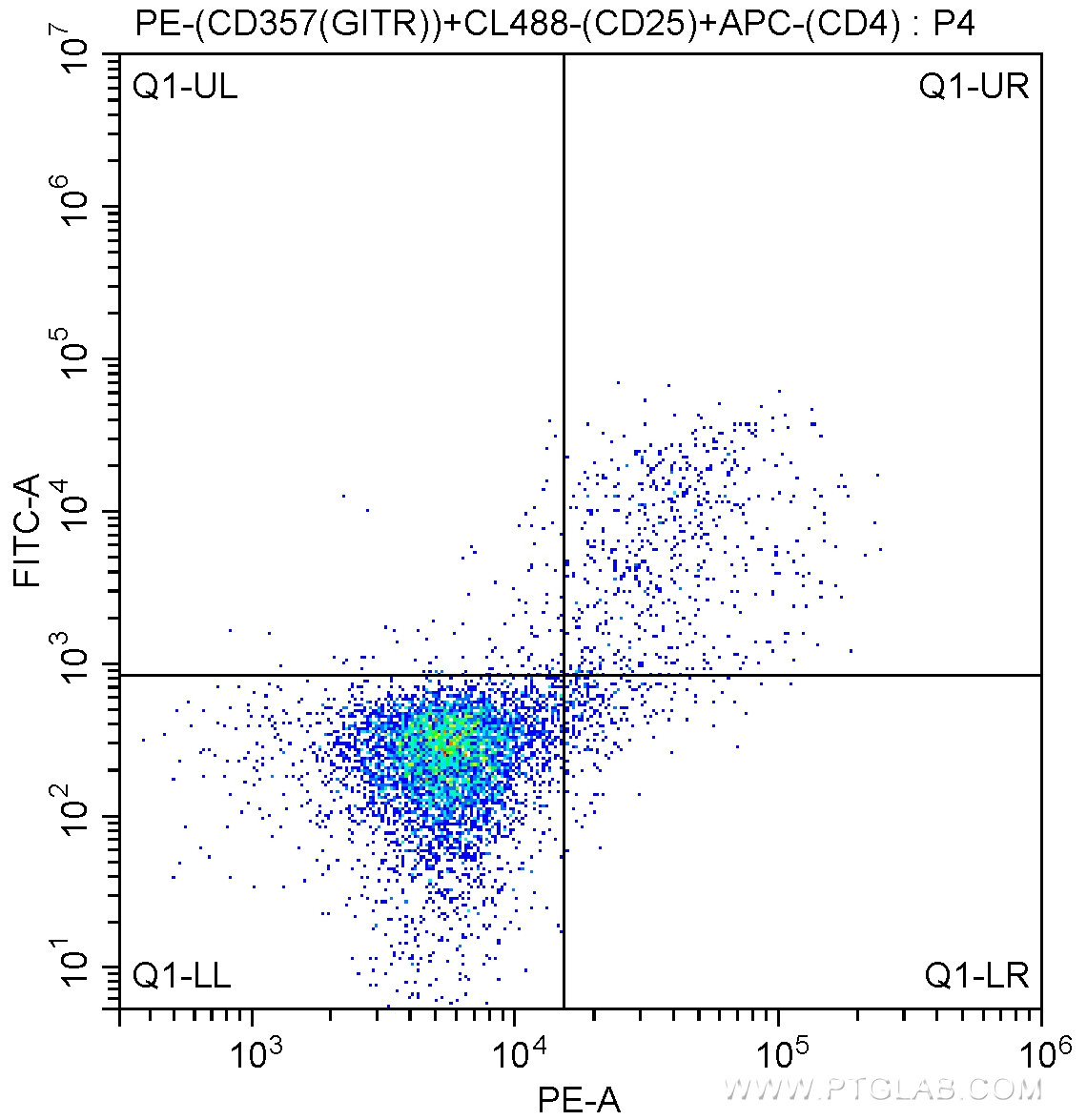验证数据展示
经过测试的应用
| Positive FC detected in | mouse splenocytes |
推荐稀释比
| 应用 | 推荐稀释比 |
|---|---|
| This reagent has been tested for flow cytometric analysis. It is recommended that this reagent should be titrated in each testing system to obtain optimal results. | |
| Sample-dependent, Check data in validation data gallery. | |
产品信息
PE-65102 targets CD357 (GITR) in FC applications and shows reactivity with mouse samples.
| 经测试应用 | FC Application Description |
| 经测试反应性 | mouse |
| 免疫原 | Mouse CD25+ CD4+ T cells 种属同源性预测 |
| 宿主/亚型 | Rat / IgG2b, kappa |
| 抗体类别 | Monoclonal |
| 产品类型 | Antibody |
| 全称 | tumor necrosis factor receptor superfamily, member 18 |
| 别名 | Tnfrsf18, GITR, CD357, AITR |
| GenBank蛋白编号 | BC146517 |
| 基因名称 | CD357 |
| Gene ID (NCBI) | 21936 |
| RRID | AB_2883893 |
| 偶联类型 | PE Fluorescent Dye |
| 最大激发/发射波长 | 496 nm, 565 nm / 578 nm |
| 形式 | Liquid |
| 纯化方式 | Affinity purification |
| UNIPROT ID | O35714 |
| 储存缓冲液 | PBS with 0.09% sodium azide and 0.1% gelatin , pH 7.2 |
| 储存条件 | Store at 2-8°C. Avoid exposure to light. Stable for one year after shipment. |
背景介绍
Glucocorticoid-induced TNFR-related protein (GITR), also known as CD357 or TNFRSF18, is a member of the tumor necrosis factor receptor (TNF-R) superfamily. GITR is expressed constitutively at high levels in T regulatory cells (Treg cells) and plays a key role in dominant immunological self-tolerance maintained by CD25+CD4+ regulatory T cells (PMID: 11812990). It is expressed at low levels on resting responder T cells. The expression of GITR on T cells can be upregulated upon activation (PMID: 15770698). GITR is activated by GITR ligand (GITRL) which is mainly expressed on APC. GITR-GITRL interactions could co-stimulate both responder T-cell functions and the suppressive functions of Treg cells (PMID: 16868552).
实验方案
| Product Specific Protocols | |
|---|---|
| FC protocol for PE CD357 (GITR) antibody PE-65102 | Download protocol |
| Standard Protocols | |
|---|---|
| Click here to view our Standard Protocols |
